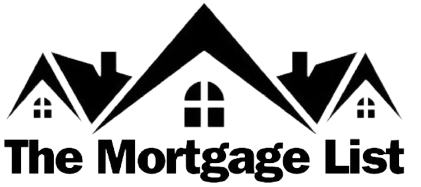Introduction to Mortgage Loan Officers
In the realm of real estate, Mortgage Loan Officers play a crucial role in facilitating the dreams of homeownership. They serve as the bridge between borrowers and lenders, guiding individuals through the complex process of securing a mortgage. With their expertise and knowledge, they help borrowers navigate through various loan options and ensure they find the best fit for their financial situation.
Role of Mortgage Loan Officers
Mortgage Loan Officers are financial professionals responsible for assisting clients in obtaining mortgage loans. They work closely with clients to understand their financial goals and recommend suitable loan products. Additionally, they facilitate the application process, gather necessary documentation, and liaise between borrowers and lenders.
Types of Mortgage Loans
There are several types of mortgage loans available in the market, each catering to different borrower needs and financial situations. These include:
- Conventional Loans
- FHA Loans
- VA Loans
- USDA Loans
Qualifications and Skills Required
Becoming a successful Mortgage Loan Officer requires a combination of education, licensing, and essential skills. While specific requirements may vary by state and employer, certain qualifications are universally valued in this profession.
Education
Most Mortgage Loan Officers hold a bachelor’s degree in finance, economics, business administration, or a related field. A solid understanding of financial principles is essential for effectively assessing borrower eligibility and loan viability.
Licensing
Mortgage Loan Officers are typically required to obtain licensure through the Nationwide Multistate Licensing System (NMLS). This process involves completing pre-licensure education courses, passing a comprehensive exam, and undergoing a background check.
Communication Skills
Effective communication is paramount in the role of a Mortgage Loan Officer. They must be able to articulate complex financial concepts in a clear and concise manner, ensuring clients understand their options and obligations.
Analytical Skills
Mortgage Loan Officers must possess strong analytical skills to evaluate borrower financial profiles and assess risk. They analyze credit reports, income statements, and other financial documents to determine loan eligibility and affordability.
Responsibilities of a Mortgage Loan Officer
Mortgage Loan Officers have a diverse range of responsibilities aimed at guiding clients through the mortgage process and ensuring a smooth transaction.

Client Consultation
The initial consultation is crucial for Mortgage Loan Officers to understand the client’s financial objectives, preferences, and constraints. They gather relevant information and assess the client’s eligibility for various loan programs.
Loan Application Processing
Once a client decides to proceed with a mortgage application, the Mortgage Loan Officer assists them in completing the necessary paperwork. They review the application for accuracy and completeness before submitting it to the lender for approval.
Credit Assessment
Mortgage Loan Officers conduct a thorough analysis of the client’s credit history to assess their creditworthiness. They identify any red flags or areas of concern that may impact the loan approval process.
Documentation Review
As part of the underwriting process, Mortgage Loan Officers review and verify the client’s financial documentation, including income statements, tax returns, and asset statements. They ensure all required documents are provided and meet the lender’s criteria.
Common Queries for Mortgage Loan Officers
Throughout the mortgage application process, clients often have questions and concerns regarding various aspects of the loan.
Interest Rates
One of the most common queries pertains to interest rates. Clients want to know how interest rates are determined, whether they can lock in a rate, and how rate fluctuations may affect their monthly payments.
Loan Terms
Clients seek clarification on loan terms, including the duration of the loan, repayment schedule, and any prepayment penalties. Mortgage Loan Officers explain the implications of different loan terms and help clients choose the most suitable option.
Down Payment Requirements
Many clients inquire about down payment requirements and available assistance programs. Mortgage Loan Officers provide guidance on down payment options, including conventional loans with varying down payment percentages and government-backed loans with low down payment options.
Credit Score Impact
Clients are often concerned about how their credit score affects their ability to secure a mortgage. Mortgage Loan Officers educate clients on the importance of credit scores, strategies for improving creditworthiness, and the impact of credit history on loan terms.
Loan Approval Process
Clients seek clarity on the loan approval process, including timelines, documentation requirements, and potential obstacles. Mortgage Loan Officers outline the steps involved in obtaining loan approval and provide ongoing support and guidance throughout the process.
Effective Ways to Handle Queries
Addressing client queries effectively is essential for building trust and ensuring a positive experience.

Active Listening
Mortgage Loan Officers actively listen to clients’ concerns and questions, demonstrating empathy and understanding. They encourage open communication and create a supportive environment for clients to voice their needs.
Providing Clear Information
Mortgage Loan Officers communicate information clearly and transparently, avoiding jargon and technical language. They break down complex concepts into digestible segments and ensure clients have a comprehensive understanding of their options.
Offering Solutions
Rather than simply providing information, Mortgage Loan Officers offer proactive solutions to address client concerns. Whether it’s exploring alternative loan options, negotiating terms with lenders, or providing financial guidance, they prioritize finding solutions that meet the client’s needs.
Building Trust and Credibility
Trust is the foundation of the client-lender relationship, and Mortgage Loan Officers must prioritize transparency, professionalism, and reliability.
Transparency
Mortgage Loan Officers are transparent about loan terms, fees, and potential risks. They provide clients with clear and accurate information to empower them to make informed decisions.
Timely Updates
Communication is key throughout the mortgage process, and Mortgage Loan Officers provide regular updates to clients on the status of their application. They keep clients informed of any developments or changes that may impact their loan approval.
Professionalism
Mortgage Loan Officers conduct themselves with professionalism and integrity, adhering to ethical standards and regulatory requirements. They prioritize the client’s best interests and maintain confidentiality throughout the process.
Handling Complex Scenarios
In addition to addressing common queries, Mortgage Loan Officers must be prepared to handle complex scenarios and unique challenges.
Self-Employed Applicants
Self-employed individuals may face additional scrutiny during the mortgage application process due to irregular income streams and tax considerations. Mortgage Loan Officers work closely with self-employed applicants to navigate these complexities and demonstrate their creditworthiness.
Low Credit Score Applicants
Clients with low credit scores may encounter difficulties securing a mortgage, but Mortgage Loan Officers explore alternative options and strategies to help improve their eligibility. They may recommend credit repair techniques or specialized loan programs designed for individuals with less-than-perfect credit.
Debt-to-Income Ratio Challenges
High debt-to-income ratios can pose challenges for borrowers seeking mortgage approval. Mortgage Loan Officers analyze clients’ financial profiles and offer guidance on debt management strategies to improve their DTI ratios and enhance their loan prospects.
Adapting to Market Trends
The mortgage industry is dynamic, with market conditions and regulatory requirements constantly evolving. Mortgage Loan Officers must stay informed about industry trends and adapt their strategies accordingly.
Interest Rate Fluctuations
Interest rates play a significant role in mortgage lending, and Mortgage Loan Officers monitor market trends to provide clients with timely advice on locking in favorable rates.
Housing Market Conditions
Fluctuations in the housing market can impact the availability of loan products and housing affordability. Mortgage Loan Officers assess market conditions and advise clients on timing their home purchase to maximize value.
Regulatory Changes
Changes in federal and state regulations can impact mortgage lending practices and eligibility criteria. Mortgage Loan Officers stay abreast of regulatory developments and ensure compliance with all applicable laws and guidelines.
Technology in Mortgage Lending
Advancements in technology have transformed the mortgage lending process, enabling greater efficiency and convenience for borrowers and lenders alike.
Online Applications
Mortgage Loan Officers leverage online platforms to streamline the application process and allow clients to submit documents electronically. This reduces paperwork and accelerates the loan approval timeline.
Digital Document Submission
Clients can securely upload financial documents and supporting materials through digital platforms, eliminating the need for in-person document exchange and facilitating faster document review.
Virtual Consultations
Mortgage Loan Officers offer virtual consultation services, allowing clients to receive personalized guidance and support from the comfort of their own homes. This enhances accessibility and convenience for busy individuals.
Tips for Career Growth
For aspiring Mortgage Loan Officers looking to advance their careers, certain strategies can accelerate professional development and success.

Continuous Learning
The mortgage industry is constantly evolving, and Mortgage Loan Officers must commit to ongoing education and skill development. They attend training programs, workshops, and industry conferences to stay informed about emerging trends and best practices.
Networking
Building a strong professional network is essential for career advancement in the mortgage industry. Mortgage Loan Officers attend networking events, join professional associations, and cultivate relationships with industry peers and mentors.
Customer Relationship Management
Effective customer relationship management is crucial for long-term success as a Mortgage Loan Officer. They prioritize client satisfaction, maintain regular communication, and nurture relationships to generate repeat business and referrals.
Case Studies: Successful Query Resolution
Illustrating real-life examples of successful query resolution can provide valuable insights and inspiration for Mortgage Loan Officers.
Future Outlook for Mortgage Loan Officers
The demand for Mortgage Loan Officers is expected to remain strong as homeownership continues to be a cornerstone of the American Dream. With technological advancements and evolving consumer preferences, Mortgage Loan Officers must adapt to meet the changing needs of clients and navigate an increasingly competitive landscape.
Conclusion
In conclusion, Mortgage Loan Officers play a vital role in helping individuals achieve their homeownership goals by providing expert guidance and support throughout the mortgage process. By addressing common queries, building trust, and staying abreast of market trends, Mortgage Loan Officers can position themselves for long-term success in this dynamic and rewarding profession.
FAQs
- What qualifications do I need to become a Mortgage Loan Officer?
- To become a Mortgage Loan Officer, you typically need a bachelor’s degree in finance, economics, business administration, or a related field. Additionally, you’ll need to obtain licensure through the Nationwide Multistate Licensing System (NMLS), which involves completing pre-licensure education courses, passing a comprehensive exam, and undergoing a background check.
- How do Mortgage Loan Officers determine the best loan option for clients?
- Mortgage Loan Officers assess clients’ financial profiles, including credit history, income, and debt-to-income ratio, to determine their eligibility for various loan programs. They consider factors such as interest rates, loan terms, and down payment requirements to recommend the most suitable option based on the client’s needs and financial situation.
- What factors influence mortgage interest rates?
- Mortgage interest rates are influenced by various factors, including the overall economy, inflation rates, the Federal Reserve’s monetary policy, and market demand for mortgage-backed securities. Additionally, factors such as the borrower’s credit score, loan term, and down payment amount can also impact the interest rate offered by lenders.
- Can Mortgage Loan Officers assist with refinancing existing mortgages?
- Yes, Mortgage Loan Officers can assist clients with refinancing existing mortgages. Refinancing involves replacing an existing mortgage with a new one, typically to obtain a lower interest rate, reduce monthly payments, or change loan terms. Mortgage Loan Officers help clients navigate the refinancing process, assess their eligibility, and explore available options.
- How can I find a reputable Mortgage Loan Officer in my area?
- You can find a reputable Mortgage Loan Officer in your area by conducting research online, asking for recommendations from friends, family, or real estate professionals, and reading reviews from past clients. Look for Mortgage Loan Officers who are licensed, experienced, and have a track record of providing excellent customer service and achieving positive outcomes for their clients.
Read More:>

